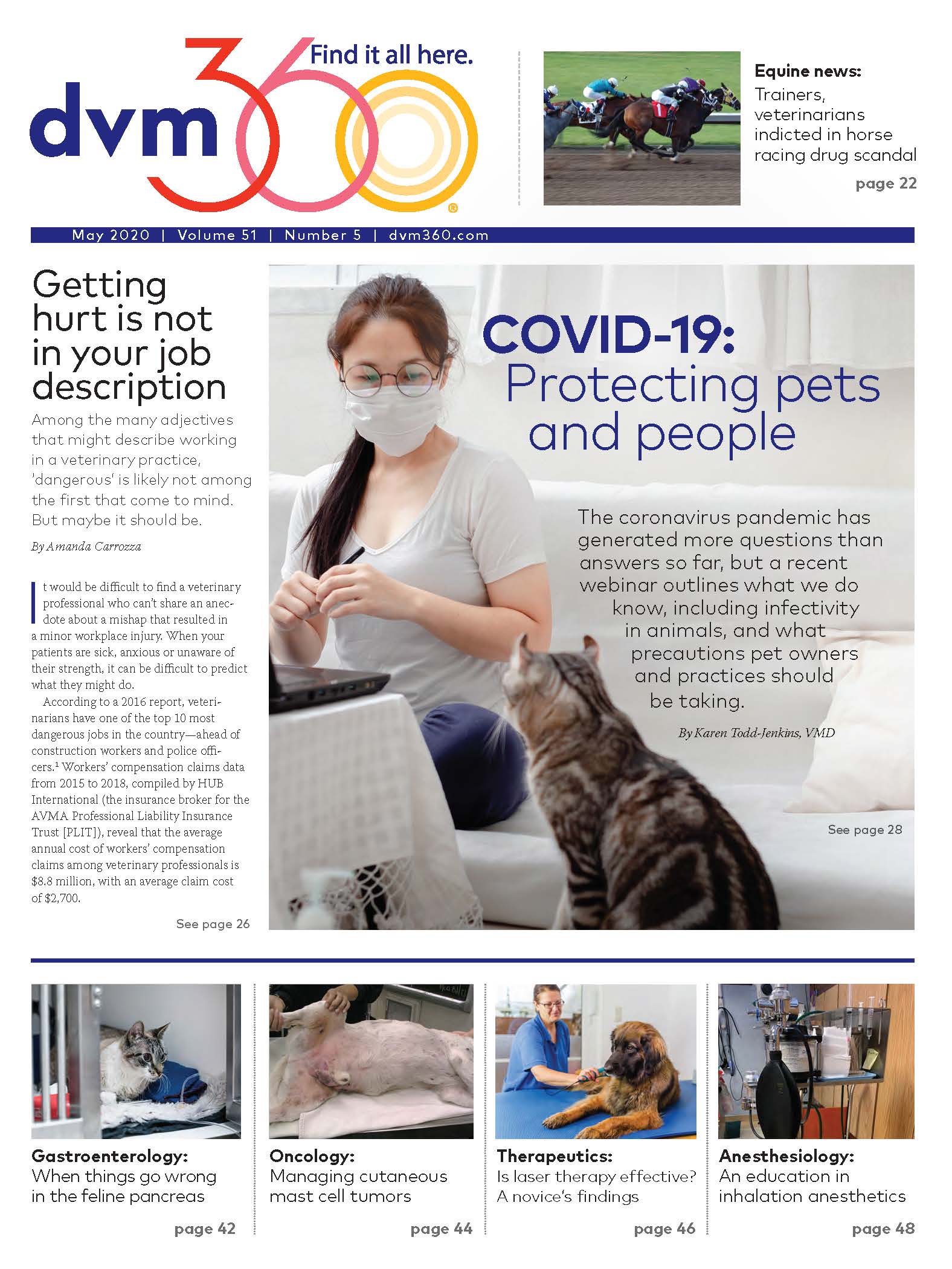Fighting fleas: An update on preventive options
A veterinary dermatologist outlines the latest in flea and tick control products—and how to choose what’s best for your patients.
Jess Wealleans / stock.adobe.com

Flea allergy dermatitis is the most common cause of itching in dogs and cats. The actual problem, of course, is hypersensitivity to the flea saliva. Fleas can also cause iron deficiency and blood loss, and serve as intermediate hosts for tapeworms and vectors for several diseases.
The ideal flea control program involves eliminating the flea population on the pet, on all “in-contact” animals and in the environment. Ideally, all pets should be protected year-round because fleas can live indoors even in the winter.
If you ask 10 veterinarians which product(s) they recommend, you will likely get 10 different answers. And that’s fine, because many of the products available today are safe and effective, enabling veterinarians to recommend what’s best based on the individual animal’s lifestyle, environment and existing health conditions.
Here is a rundown of what’s out there.
Isoxazolines—the newest parasite control products
The isoxazoline group of products is one of the newest on the market (see Table). These products are extremely effective in treating and preventing fleas and ticks. They are absorbed systemically, so the fleas and ticks are killed only when they bite the animal. Isoxazolines work by selective inhibition of gamma-aminobutyric acid (GABA) and glutamate-gated chloride channels, resulting in hyper-excitation and death of fleas and ticks.
Table. Available isooxazoline products

The onset of action for all isoxazoline products is between two and four hours. Nearly 100% of fleas are killed within 8 hours, and more than 90% of ticks are killed within 48 hours. These products are excellent for dogs that live in climates where fleas and ticks are more prevalent, and they are especially good for dogs that are bathed or go swimming frequently. A new product containing sarolaner, moxidectin and pyrantel (Simparica Trio—Zoetis) has recently been approved. This oral medication provides protection against flea, ticks, roundworms, hookworms and heartworms.
The isoxazolines have also been used successfully off label for treatment of mites such as Sarcoptes scabiei, Demodex canis and Otodectes cynotis. If products are being used off label for one of these reasons, it should be explained to the owner.
Other oral products
Additional well-known oral flea control products include Capstar (nitenpyram—Elanco) and Comfortis (spinosad—Elanco), both of which have a quick speed of kill (30 minutes) for fleas but are not effective against ticks. Capstar only lasts for 24 hours and so must be administered daily, but it is excellent for quick relief of severe infestations. Comfortis is administered monthly.
It should also be noted that in pets with food allergies or gastrointestinal (GI) disease, the flavoring in oral products (with the exception of Capstar, which is a tablet) could lead to flare-ups of skin or GI tract problems. All oral parasite preventive products should be used with caution in patients with these types of underlying disease.
Collars
Seresto collars (Bayer) are favored by many clients who live in highly tick-infested areas. These collars contain imidaclopid for flea control and flumethrin for tick control, and can last up to 8 months. The collar must fit the animal snugly because the goal is to build a layer of protection that kills fleas, and repels and kills ticks. Animals can be bathed at reasonable intervals (monthly) with little effect on efficacy. This product is often used in conjunction with other products (either oral or topical) in pets whose owners want extra protection against ticks.
Topicals
Topical parasite preventives have been around for many years, and new ones hit the market every few months. These products can contain a combination of insect growth regulators, adulticides and repellants. It is extremely important not to confuse canine and feline products because certain repellents (mainly permethrin) are known to be toxic to cats.
Revolution (selamectin—Zoetis) has long been a favorite of veterinary dermatologists because it is a topical (i.e. nonflavored) monthly option for flea and heartworm prevention. This is important because many of our patients are in the process of completing strict diet trials or have confirmed food allergies. It can be used in young pets (6 weeks for dogs, 8 weeks for cats). Additionally, because it is absorbed systemically, bathing the pet will not affect efficacy. Revolution is also labeled for treatment of O. cynotis and S. scabiei along with hookworms and roundworms. It is only labeled for one type of tick (Dermacentor variabilis), so patients that live in high tick areas should be protected with other products as well to ensure good coverage. A newer preventive, Revolution Plus (selemectin and sarolaner), has been released for cats. This product protects against fleas, roundworms, hookworms, ear mites, heartworm and three varieties of ticks (D. variabilis, Ixodes scapularis and Amblyomma maculatum.)
Other topical products that are commonly recommended by veterinarians include Frontline (Plus/Gold—Merial), Advantage (II/Multi—Bayer), K9 Advantix (Bayer), Vectra/Vectra 3D (Ceva) and Activyl (Merck). All control fleas, and some provide tick or heartworm prevention as well. This list is not exhaustive, and there are additional effective products on the market. It is not uncommon to use more than one product each month for extra protection.
Choosing the right product
Overall, there are so many effective flea control products available for our patients. One just needs to consider the needs of the patient, the client and the environment to determine the best product or combination of products.
Dr. Seltzer graduated from the Royal Veterinary College in London and completed her residency in dermatology at the University of Florida. She has been working in her home state of New York since 2009, currently at BluePearl Veterinary Partners in New York City.
